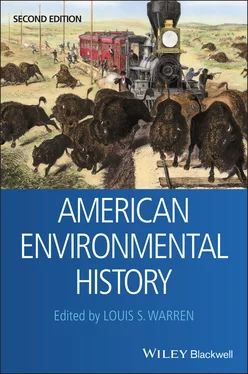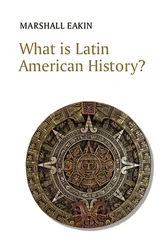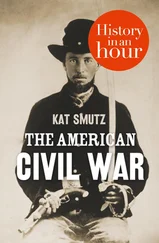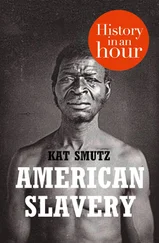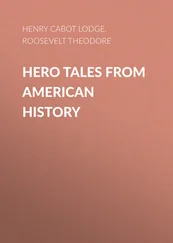479 465
480 466
481 467
482 468
483 469
484 470
485 471
486 472
487 473
488 474
489 475
490 476
491 477
492 478
493 479
494 480
495 481
496 482
497 483
498 484
499 485
500 486
501 487
502 488
503 489
504 490
505 491
506 492
507 493
508 494
509 495
510 496
511 497
512 498
513 499
514 500
515 501
516 502
517 503
518 504
519 505
520 506
521 507
522 508
523 509
524 510
525 511
526 512
527 513
528 514
529 515
530 516
531 517
532 518
533 519
534 520
535 521
536 522
537 523
538 524
539 525
540 526
541 527
542 528
543 529
544 530
545 531
546 532
547 533
548 534
549 535
550 536
551 537
552 538
553 539
554 540
555 541
556 542
557 543
558 544
559 545
560 546
561 547
562 548
563 549
564 550
565 551
566 552
567 553
568 554
569 555
570 556
571 557
572 558
573 559
574 560
575 561
576 562
577 563
578 564
579 565
580 566
581 567
582 568
583 569
584 570
585 571
586 572
587 573
588 574
589 575
590 576
591 577
592 578
593 579
594 580
595 581
596 582
597 583
598 584
599 585
600 586
601 587
602 588
603 589
604 590
605 591
606 592
607 593
608 594
609 595
610 596
611 597
612 598
613 599
614 600
615 601
616 602
617 603
618 604
619 605
620 606
621 607
622 608
623 609
624 610
625 611
626 612
627 613
628 614
629 615
630 616
631 617
632 618
633 619
634 620
635 621
636 622
637 623
638 624
639 625
640 626
641 627
642 628
643 629
644 630
645 631
646 632
647 633
648 634
649 635
650 636
651 637
652 638
The purpose of the Blackwell Readers in American Social and Cultural History is to introduce students to cutting-edge historical scholarship that draws upon a variety of disciplines, and to encourage students to history themselves by examining some of the primary texts upon which that scholarship is based. Each of us lives life with a wholeness that is at odds with the way scholars often dissect the human experience. Anthropologists, psychologists, literary critics, and political scientists (to name just a few) study only discrete parts of our existence. The result is a rather arbitrary collection of disciplinary boundaries enshrined not only in specialized publications but also in university academic departments and in professional organizations. As a scholarly enterprise, the study of history necessarily crosses these boundaries of knowledge in order to provide a comprehensive view of the past. Over the last few years, social and cultural historians have reached across the disciplines to understand the history of the British North American colonies and the United States in all its fullness. Unfortunately, much of that scholarship, published in specialized monographs and journals, remains inaccessible to undergraduates. Consequently, instructors often face choices that are not very appealing – to ignore the recent scholarship altogether, assign bully readers that are too detailed for an undergraduate audience, or cobble together packages of recent articles that lack an overall contextual framework. The individual volumes of this series, however, each focus on a significant topic in American history, and bring new, exciting scholarship to students in a compact, accessible format. The series is designed to complement textbooks and other general readings assigned in undergraduate courses. Each editor has culled particularly innovative and provocative scholarly essays from widely scattered books and journals, and provided an introduction summarizing the major themes of the essays and documents that follow. The essays reproduced here were chosen because of the authors’ innovative (and often interdisciplinary) methodology and their ability to reconceptualize historical issues in fresh and insightful ways. Thus, students can appreciate the rich complexity of an historical topic and the way that scholars have explored the topic from different perspectives, and in the process transcend the highly artificial disciplinary boundaries that have served to compartmentalize knowledge about the past in the United States. Also included in each volume are primary texts, at least some of which have been drawn from the essays themselves. By linking primary and secondary material, the editors are able to introduce students to the historian’s craft, allowing them to explore this material in depth; and draw additional insights – or interpretations contrary to those of the scholars under discussion – from it.
Jacqueline Jones
Brandeis University
Many thanks to all the friends and colleagues who helped in the making of this edition, especially Lissa Wadewitz, as well as Matthew Booker, Mark Fiege, Matt Klingle, Neil Maher, Ruth Oldenziel, Cindy Ott, Jenny Price, Mart Stewart, Paul Sutter, Julie Sze, and Mike Ziser. Rachel St. John was, as usual, the perfect consultant and frequent provocateur; the book is better for our conversations.
I extend a huge thank you also to the then-graduate students, now PhDs, who provided critical research and feedback: Nick Perrone, Miles Powell, Mary Mendoza, Lizzie Grennan Browning, Cori Knudten, and Rebecca Egli. At John Wiley and Sons, Jennifer Manias and Andrew Minton were a huge help in navigating the complicated process of compiling, permitting, and finally publishing this book. Many, many thanks.
During the research, writing, and editing of this book, I have been especially grateful to have had the generous fellowship support of the Rachel Carson Center for Environment and Society, Munich, Germany; the Huntington Library, San Marino, California; the Shelby Cullom Davis Center for Historical Studies, Princeton University; the Bill Lane Center of the American West, Stanford University; the John Simon Guggenheim Memorial Foundation; and small grants from the Faculty Research Grants program at the University of California, Davis.
What is environmental history? At its most fundamental level, environmental historians explore the changing relations between people and nature. Such a broad definition can be more of a hindrance than a help, however. So let’s be more specific. Environmental historians study how people have lived in the natural systems of the planet, and how they have perceived nature and reshaped it to suit their own ideas of good living. They examine, too, how nature has changed in response to human action, and how nature, in changing, has required people to reshape their cultures, economies, and politics to meet new realities. As we’ll see in the pages that follow, such processes are not without social friction and unrest. People in history have battled mightily and often over how best to live in nature.
As a field of study, environmental history has been around for more than a generation. To many, it is most familiar as the history of the environmental movement. Obviously, the kinds of relations and processes I am discussing here go far beyond that, but, to be sure, the history of environmental reform and politics is central to the field.
Читать дальше
